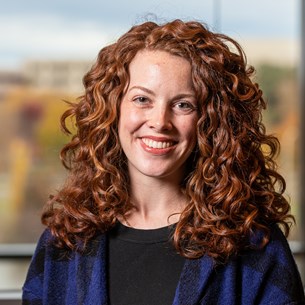Meeting
2023 ASCO Quality Care Symposium

University of Alabama at Birmingham, Birmingham, AL
Courtney Williams, Margaret Irene Liang, Gabrielle Betty Rocque, Risha Gidwani, Nicole E. Caston, Maria Pisu
Background: Financial hardship is known as an “adverse event” for individuals with cancer. This study used data collected as part of routine care to understand the magnitude of and potential inequities in cancer-related financial hardship for patients with cancer receiving care in the Deep South. Methods: Universal financial hardship screening was piloted among oncology patients initiating treatment at University of Alabama at Birmingham from October 2020-May 2023. Financial hardship screening questions were added to a standard-of-care treatment planning survey administered by lay navigators. Questions included measures of (1) financial distress (Comprehensive Score for financial Toxicity [COST], scored 0-44; scores <26 indicate financial distress), and (2) financial difficulties affording one or more of 10 items. Proportions of screens completed and variations in financial hardship were calculated overall and by patient race and rurality. Results: Patients who completed treatment planning surveys (N=2,741) were an average 62 years old (SD 13), 18% Black, Indigenous, or persons of color (BIPOC), and 16% rural dwelling. Financial hardship screening was completed by the majority (90%) of patients with treatment planning surveys. Patients with a breast (23%), gynecologic (16%), or gastrointestinal (14%) cancer most commonly completed screening. Completion was similar by race and rurality. Screening identified 34% of patients were experiencing financial distress (mean COST 28, SD 11). However, 49% of BIPOC patients screened positive for financial distress compared to 30% of White patients. The most commonly reported financial difficulties were insurance or medical bills (reported by 32% of patients), upfront medical payments (29%), and medications (22%). Large differences in reported financial difficulties were seen comparing patients who were BIPOC and White (Table). Rural- and non-rural-dwelling patients reported similar proportions of financial difficulties. Conclusions: Most patients completed lay navigator-led financial hardship screening, which identified racial inequities in financial hardship even before treatment initiation. Efforts to collect patient economic data should support the design, implementation, and evaluation of patient-centered interventions to improve equity and reduce adverse cancer-related economic outcomes.
| Overall | White | BIPOC | Difference by race | |
|---|---|---|---|---|
| Utilities | 16% | 10% | 33% | 23% |
| Upfront medical payments | 29% | 23% | 44% | 21% |
| Insurance/medical bills | 32% | 27% | 44% | 17% |
| Transportation for treatment | 17% | 12% | 28% | 16% |
| Basic needs | 13% | 9% | 25% | 16% |
| Medications | 22% | 18% | 33% | 15% |
| Medical supplies | 19% | 15% | 28% | 13% |
| Employment/disability issues | 19% | 17% | 26% | 9% |
| Lodging for treatment | 17% | 15% | 22% | 7% |
| Child/eldercare | 7% | 5% | 12% | 7% |
Disclaimer
This material on this page is ©2024 American Society of Clinical Oncology, all rights reserved. Licensing available upon request. For more information, please contact licensing@asco.org
2023 ASCO Quality Care Symposium
Poster Session
Poster Session B
Health Care Access, Equity, and Disparities,Technology and Innovation in Quality of Care,Palliative and Supportive Care
Interventions and Policies to Optimize Health Equity
JCO Oncol Pract 19, 2023 (suppl 11; abstr 196)
10.1200/OP.2023.19.11_suppl.196
196
F7
Abstract Disclosures
2024 ASCO Quality Care Symposium
First Author: Emeline Mariam Aviki
2023 ASCO Annual Meeting
First Author: John B. Kisiel
2024 ASCO Quality Care Symposium
First Author: Patricia P. Falconer
2023 ASCO Quality Care Symposium
First Author: Paola Russo